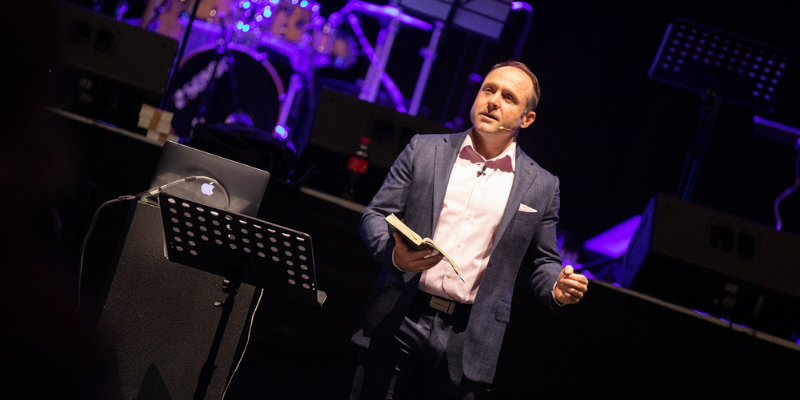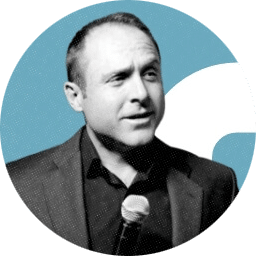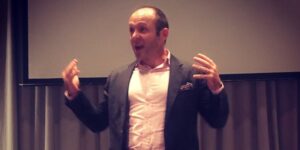In this episode, we dissect the direct impact of teaching on student wellbeing, question the prevailing emphasis on emotional awareness, and explore the relevance of stoic philosophy in fostering resilience. With insights from Abigail Shrier’s “Bad Therapy” and reflections on Freudian ideals, we challenge cultural assumptions to find a balanced approach to emotional health.
Welcome Aboard
Hey there, my friend, Jonathan Doyle with you once again. Welcome aboard to the Catholic Teacher Daily Podcast. It is a podcast, it is daily and it is for Catholic teachers all around the world who I think are just pretty darn awesome. I really do. I turned 50 last year and I realized how much of my life had been just involved with a Catholic education, and I just love what you guys do. And I just think it’s such a cool thing and so important.
Direct Impact of Teaching: Celebrating the Connection Between Actions and Impact

I said this to Karen last night. I spent the whole of yesterday working on this whole bunch of complex letters that we had to send out to a bunch of bishops and I said, The thing about this is that I’m doing this work, and you don’t see the result. You don’t see the relationship between the work you’re doing and its impact on people. Like these letters to the bishops, open up conversations that open up other things and eventually they bear a lot of fruit.
But when you’re a teacher, you get this direct feedback, right? I know your life is challenging, and I know it’s not roses and sunshine every day, but there’s more of a direct relationship between who you are, what you’re doing, how it’s received, and how you’re impacting young people. Celebrate that. Thank God for that.
In every conversation, even with a smile, I’ve often talked about this, you can’t know where a kid’s at. You can’t know if the kids had the most horrendous night at home before he came to school, feeling terrible. She comes to school feeling terrible, and you just smile at her and strike up a conversation. The impact of that can be so transformative. So I just think you’re really lucky. I really do.
God’s asking me to do different work at the moment. But I just think what you’re doing is so special, and God’s really proud of you that you’re doing it. So thank you for what you do.
Exploring "Bad Therapy" by Abigail Shrier: A Provocative Perspective
Friends, I’ve been on a bit of a tear this week. I had a really bad accident seven days ago, broke 12 ribs, broke my collarbone and shattered my shoulder. I’m back in the studio, it’s good to be here. And I’m focusing a bit on a new book by Abigail Shrier called Bad Therapy. She’s a controversial figure, she’s saying some very powerful things, and I really recommend the book to you. And I’m just picking out a few high points in the book over this week of episodes.
Today I want to share with you a profound quote from Yulia Dutton, who is the Head of Culture and Emotions lab at Georgetown University. She’s an absolute preeminent world expert on emotions. One of the things that the book’s talking about is this huge focus that the wellbeing space has opened up in terms of focusing on the emotions of young people. This is why this book is quite controversial.
Questioning the Emphasis on Young People's Emotions
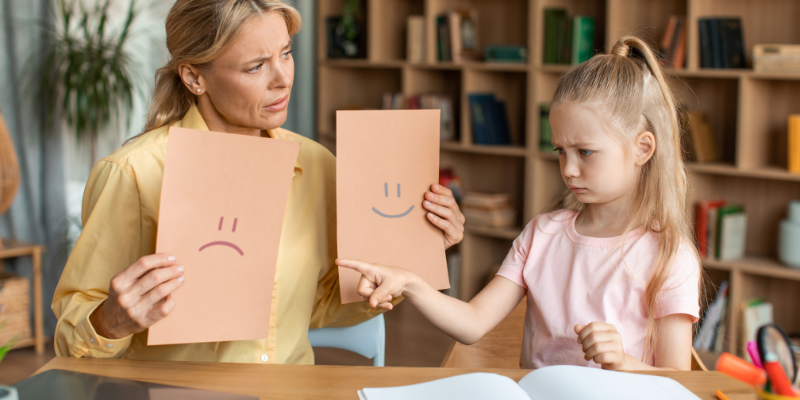
I’ll give you the meta thesis. It is simply that what if intense focus on the wellbeing space and the emotions of young people are having the exact opposite effect of the one that we want them to have. What if constantly focusing and worrying about the emotions of young people and getting them to constantly question and focus and really reflect upon their own emotions all the time is not the best approach.
Now, if you’re hearing this going, he’s speaking heresy. Then that’s telling us a lot, because I’m just wondering if saying some of these things is really important at this moment. Because I wonder if we’ve gone a long way down the path that may not be helping us. I think if you go back to the episode from May 9, I spoke more about this in detail, but let me give you this quote, and then we can just talk about it a little bit. The Head of the Culture and Emotions lab at Georgetown University, professor Yulia Dutton says,
“Emotions are highly reactive to our attention to them. Certain kinds of attention to emotions, focus on emotions, can increase emotional distress. And I’m worried that when we try to help our young adults, help our children, what we do is throw oil onto the fire.”
Yulia Dutton Tweet
I found this whole section in the book really interesting. It’s basically arguing that we’ve thought for a long time that great focus, awareness, and sensitivity to our internal emotional states is a sign of mental health. Some of what this book is suggesting is that it could be the exact opposite.
Exploring Stoic Philosophy and its Relevance to Emotional Well-being
I’m currently rereading Marcus Aurelius’ Meditations, and if you look at stoic philosophy, of course, there’s this profound thesis, which is, it doesn’t matter what you feel; what matters is what you do. And learning to pay less attention to our emotional states can actually be an important thing.
In the work that I do in corporate stuff from professional development, I’ve been making the point for many years, trying to help thousands of people agree that if you want to create change in your life, one of the first things you have to realize is that you’ll almost never feel like doing it. You will intellectually assent to the idea of change.
Applying Stoic Principles to Professional Development and Personal Growth
If you tell someone, Do you want to lose weight, do you want to make more money, do you want to grow your business, do you want to do this. People are like, of course I do. No one’s going to say “no I actually want to get worse.” Intellectually, we all say what we want. But when it comes to doing the hard things, we very rarely feel like it. And if we paid attention to our negative feelings all the time, we wouldn’t create transformative change in our lives.
So I think what they’re getting at in ‘Bad Therapy’ is that they’re saying that if you create a culture in schools where you create the idea of wellbeing, mental health, and emotions. It’s so predominant that it’s just front and center all the time. Could it not possibly begin to get kids to become overly or hypersensitized to their own emotional states. Is it possible that could happen?
There is a middle path here, right? There is a golden mean, there must be because absolute stoicism would be problematic because you wouldn’t feel anything, or you would stuff the feelings down. You wouldn’t feel anything in life like it’s a lot of richness. But if you acted on everything you felt all the time, you’d be dangerous.
Challenging Cultural Assumptions: Examining Freudian Ideals and Mental Health
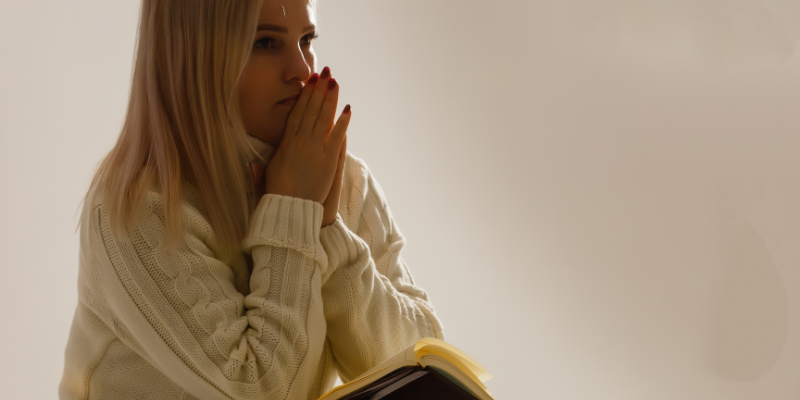
Often, I talk about the impact of Freud’s. A lot of my post-grad focus was on Freud, and Freud wrote a book called Civilization and its Discontents. And if you’re not familiar with Freud, go and read Carl Trueman’s work on Freud because he’s unequivocal. Freud’s meta-analysis of reality was simply this: That the entire human experience can be reduced to the genital sexual urge and the genital sexual edge for pleasure.
Freud genuinely believed that culture, religion and everything comes into existence to restrain the human sexual urge. We are nothing more than our genital sexual drives and everything that we call culture—art, music, literature, government politics, all of tha, he says it emerges just to retard it.
In chapter eight of Civilization and its Discontents, he says these important words: “All who seek to be nobler than their constitution permits them to succumb to neurosis. They would be in better health if they had found it easier to be morally worse.”
It’s a direct quote that I memorized many years ago. What Freud is saying is that if you restrain an impulse, he said that it would make you mentally ill. That’s literally what that quote means: all who seek to be more noble than the constitution permits. So if you’re feeling lust or have strong sexual drives, and if you try to be more noble than that and try to restrain it in an appropriate way, he says you will succumb to neurosis.
Addressing Societal Trends: Impact of Freudian Concepts on Modern Culture
If you think about that idea, how wholesale that was sent into culture. If it feels good, do it and if you don’t act on your impulses, you’ll have mental health problems. Charles Tyler would say that’s the social imaginary. That is basically an idea that is in the water, it’s everywhere. The idea that if we don’t, if we hold back our impulses, that’s not good for us. We will lie about it and say, Oh no, we don’t think that. Of course we all restrain ourselves to the impossible. We’ll give it intellectual assent, but I think deep down, many of us are still at this idea that if you say no to something, if you really restrain emotions, there’s going to be problems.
Now, look, there’s complexity here. I get it. There’s a lot to this discussion. But I think what’s happened is that some of this Freudian stuff is linked to culture in the sense that we think of young people. If young people begin to not indulge in every emotion, if they become a fraction more stoic, then they get worse.
Reassessing Strategies: Potential Drawbacks of Overemphasizing Emotional Awareness in Schools

I don’t know friends, like if you look at the data in terms of mental health, they are getting worse. The levels of mental health, depression, and anxiety, self-harm, suicidal ideation—all of that stuff is rising. So whatever we are doing is not currently working.
One school I’m aware of had this system where I think three times a week the students were filling out an online mental health survey. And it was questions like, Did you have a safe place to sleep last night? Is there violence in your home? What did you feel like? Now you can make an argument. I know people make an argument. I’ve got problems with that because I think one of the first things that it does is it compromises the primacy of the parent-child relationship and shifts it to the state.
It makes the school an agent of the state and it Inserts itself into that primacy, that parent relationship. I know the immediate pushback will be what about the kid that is living with domestic violence? That’s a big discussion because the fact that a small percentage of students may have really difficult circumstances doesn’t mean that we should necessarily create an environment where all our students become sensitized to those questions that they may never have otherwise been sensitized to.
Reconsidering the Overemphasis on Emotional Awareness
I think that is a much bigger discussion that’s never been had. But my point is that eventually the school stopped doing this. Now, I don’t know why they stopped. I don’t know what they found that wasn’t really achieving anything, or it was an administrative burden. But can we not agree that if it was working, that if it was a good idea, it would be continuing. But it’s not. Getting young people to be relentlessly sensitized to their own emotions may not be a brilliant strategy.
Revisiting Historical Patterns of Masculinity

One of my kids, my son, is 15, and we joke about this. He’s a very self-contained kid. We don’t tend to have these vast, deep, emotional discussions. We have discussions because he wants to have them, as they’re appropriate. A few weeks ago, we were fishing for a week, and he and I were on the rocks. Fishing for like hours at a time. I know some of you might be shocked to think, Jonathan, you should be having this deep father, son, we are just with each other.
If you think about human civilization, fathers and sons worked together until the industrial revolution. So for most of human history, fathers and sons just spent vast amounts of time together doing stuff. I would doubt that a lot of that time was spent in deep existential reflection. This is a long episode. I hope I haven’t lost you. I’m just opening up some ideas.
Evaluating Stoicism in Modern Contexts
There’s a lot of talk in my country at the moment around toxic masculinity and stuff. And I’ll be honest, I think there’s a place for stoicism. I think there’s a place for men to enjoy difficult emotions and hardship. Is that the same for women? I don’t know. I’m not a woman, I’m just directing it to men at this point. I learned when I was taught the great quote from Plato says that feelings are excellent servants, but terrible masters. I don’t have to pay attention to every feeling that I have. I’m a natural pessimist. By disposition I’m a pessimist, my father was, my mother is not. I’m married to an optimist.
So my default setting is that it would trend that way. So I have learned through decades of experience to not always pay attention to my feelings. Because if I always paid attention to my feelings, I wouldn’t do anything.
Questioning Cultural Trends in Emotional Health

As you go about your work in Catholic education, I’m just beginning to wonder if there’s a little bit of a counter-revolution that could take place, which would it be? Let’s begin to ask some questions about the pathologizing of every emotion, let’s begin to ask some questions about: is it good, necessary, useful, or healthy to immerse ourselves so intimately and consistently in the emotional lives of our students.
Now, I’m not saying you’re doing that. I’m just saying it’s a cultural trend that we assume the worst. We assume that because of the statistics, they must all be suffering all the time. I don’t know; it’s a complex discussion, but I think it’s when we should begin to have it, and I’m open to hear other perspectives. I really am, I’m curious. So if you want to post comments, you can get me through the website, you can get me through Instagram.
But that quote was from one of the absolute preeminent experts in the world. Who’s saying that we’ve got to be careful, because emotions are responsive to our attention to them.
Addressing the Decline in Family and Social Structures

All of us in high school have a first love or you break up with someone, you may feel in those days you put on a sad song. I think most of you who listen to me now, I could probably think of a song that you played a hundred times when someone broke your heart. This wasn’t just me. We’ve all been there. Then we’ve had these really difficult times and we were really sad. But it passed.
Maybe we talked about it a lot of the time, or maybe we didn’t. And maybe we did have good social support, that’s another thing that I haven’t really mentioned is the collapse in social and family support. Our networks of grandparents and extended family diminished. So kids often don’t have as many places just for simple discussion and companionship and friendship to talk about things. I think the isolation piece is playing into it, so that their mother’s intense emotions don’t get diffused in a bigger family context, a lot of stuff is going on here.
Embracing Thoughtful Inquiry and Spiritual Guidance

So to summarize, to finish up, I just want to say that I think that what a great Catholic school is going to do and what a great Catholic teacher’s going to do is be a place where sober, thoughtful, and prayerful people are thinking about these questions. And questioning some of the spirit of the age. Because friends, I’m all for what works. If the relentless focus on therapeutic culture for young people and the relentless focus on wellbeing were working, it would have worked by now. I don’t know what you think about that.
Call to Action
All right. Please subscribe to the podcast. Everything else you need to know about me is on the website. jonathandoyle.co. You can book me to speak, the Catholic consulting work that I do is there. And you can find me on Instagram at @jdoylespeaks one word.
God bless you. My friends, this has been the Catholic Teacher Daily Podcast. You and I are going to talk again tomorrow.
